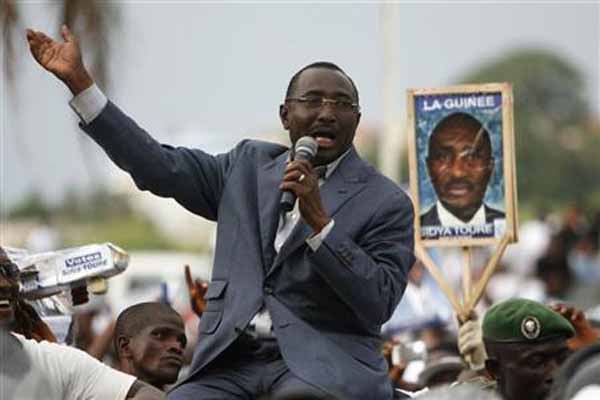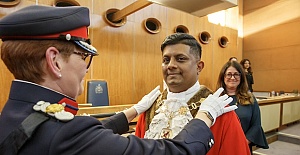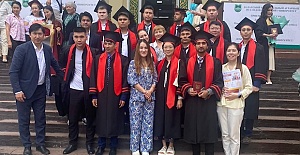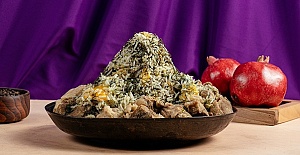Guinea's opposition said it would stage protests this week against the president's decision to hold parliamentary elections in June, raising the risk of more bloodshed after violent demonstrations last month. The vote is meant to complete a transition to civilian rule in the mineral-rich country after a 2008 military coup and could unlock hundreds of millions of dollars in European aid. It was originally supposed to be held in 2011, but has been held up by wrangling over the makeup of the electoral commission and opposition accusations that the government was planning to rig it. Nine people were killed and more than 300 were wounded in clashes between security forces and opposition protesters during a wave of protests in late February and early March. President Alpha Conde set the June 30 date for the polls in a decree read on state television on Saturday.
Opposition groups have alleged there were irregularities in awarding a contract to update the electoral register to the South African firm Waymark. They say Waymark is skewing the list to favour Conde's allies and demand the company be replaced.
The government has said there is not enough time to bring in a replacement and that the firm's system is secure against fraud.
"We have decided to relaunch our demonstrations with a peaceful march on Thursday. Friday will be a stay-at-home strike, and we will continue next week," opposition spokesman Aboubacar Sylla told Reuters late on Sunday.
"We understand that we can no longer trust this government ... We have decided not to stop our protests until our demands are entirely satisfied," Sylla said.
Guinea is the world's top exporter of the aluminium ore bauxite and has rich deposits of iron ore, gold and diamonds.
The political uncertainty has led to billions of dollars in mining investments being put on hold and hit Guinea's mining-dependent economy hard. It registered 3.9 percent growth last year, 1 percentage point lower than forecast.
The opposition, which also wants Guinea's largely pro-opposition diaspora to be allowed to vote, had agreed to reopen stalled negotiations with the government last week. But it said the talks broke down after the government decided to push ahead with election preparations.
Conde's office said on Monday that the United Nation's special representative for West Africa, Said Djinnit, had been named by Secretary-General Ban Ki-moon to serve as mediator in the negotiations.
"We hope that this does not mean they are breaking off dialogue and that with the presence of the facilitator we will be able to address the questions that continue to worry (the opposition)," said government spokesman Damantang Albert Camara.
Behind Guinea's political feuding there is a deep-rooted rivalry between the Malinke and the Peul, its two largest ethnic groups. The Malinke broadly support Conde, while the opposition draws heavily from the Peul.



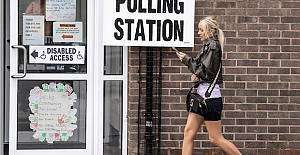 Advice for Enfield residents ahead of the General Election
Advice for Enfield residents ahead of the General Election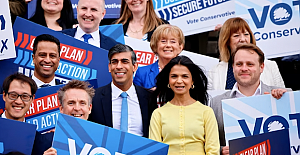 Sunak promises tax cuts, economic stability, Conservative Party election manifesto
Sunak promises tax cuts, economic stability, Conservative Party election manifesto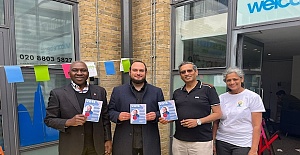 Ertan Karpazli, an independent MP candidate for the Enfield North constituency
Ertan Karpazli, an independent MP candidate for the Enfield North constituency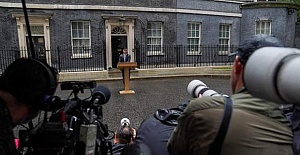 Rishi Sunak announces a general election in a statement outside Downing Street
Rishi Sunak announces a general election in a statement outside Downing Street Residents of Spanish island of Mallorca launch initiative to thank tourists amid protests over mass tourism
Residents of Spanish island of Mallorca launch initiative to thank tourists amid protests over mass tourism Srebrenica Remembered, Lessons for Justice and Peace! YEE London held a reflective event
Srebrenica Remembered, Lessons for Justice and Peace! YEE London held a reflective event British Premier Keir Starmer to reset UK-EU relations with high-profile meetings
British Premier Keir Starmer to reset UK-EU relations with high-profile meetings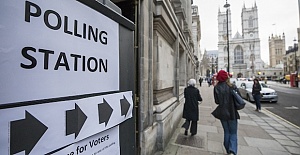 Voters head to polls for UK general election
Voters head to polls for UK general election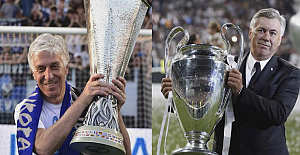 The Swiss official will take charge of the match between Real Madrid and Atalanta in Warsaw
The Swiss official will take charge of the match between Real Madrid and Atalanta in Warsaw Applications are now open for Walking and Cycling Grants London until 9 September 2024
Applications are now open for Walking and Cycling Grants London until 9 September 2024  Two Circles also appointed as exclusive media sales agency for UEFA Women’s Champions League
Two Circles also appointed as exclusive media sales agency for UEFA Women’s Champions League  England manager Gareth Southgate has resigned two days after defeat by Spain
England manager Gareth Southgate has resigned two days after defeat by Spain Joyce and Snell's planning application gets stamp of approval
Joyce and Snell's planning application gets stamp of approval The amount of bounce back loans fully repaid is just %13
The amount of bounce back loans fully repaid is just %13 Petrol prices higher than they should be, says RAC
Petrol prices higher than they should be, says RAC UEFA and Mastercard renew UEFA Champions League partnership
UEFA and Mastercard renew UEFA Champions League partnership




